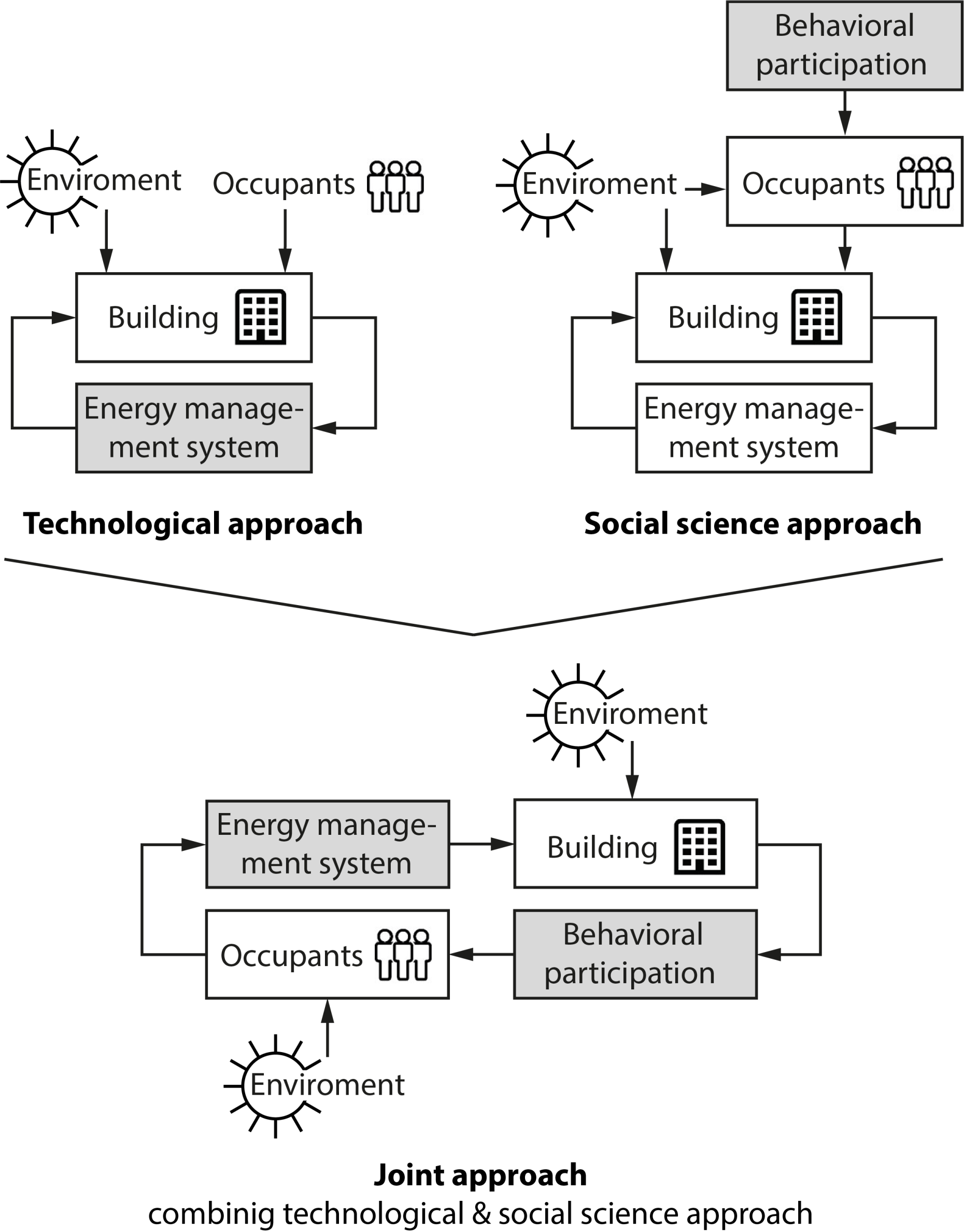Humans in the Loop: A Joint Approach for Technical Optimization and Behavioral Participation for Building Energy Efficiency
Efficient building energy management has attracted a great interest due to significant potential energy savings. One obvious challenge is how to combine the efforts by engineers on improving the energy management system with approaches of social scientists to integrate the occupants actively in the energy management system.
Buildings account for around three quarter of the total energy consumption in the US and in Europe. Therefore, the potential for energy savings is substantial and intensive research is going on. While engineers investigate in control strategies for the efficient operation of the building devices, social scientists try to achieve these savings by employing behavior-based approaches for energy-use efficiency. Despite the efforts in both fields, there is a lack of a combined approach, since current approaches that concentrate only on technological or only on social aspects often turn out to be incompatible with each other.
This research project is a first step towards bridging these two approaches by proposing a control scheme that encapsulates building occupant behavior into the energy management system. In particular, the occupants’ willingness to tolerate comfort bound violations is exploited to reduce the energy consumption. Therefore, the occupants’ willingness is modeled as a random uncertainty built on survey results of the Institute of Economy and the Environment, University of St. Gallen. This model is incorporated into the building energy management system through disturbance feedback control policies, such that it can react on the occupants.
The project is conducted by Dr. Annika Eichler and ESC member, Prof. John Lygeros head of the Automatik Control Laboratory.
The Automatic Control Laboratory (IfA) is a part of the Department of Information Technology and Electrical Engineering (D-ITET). The focus of the laboratory is research and teaching in the field of automatic control systems.

